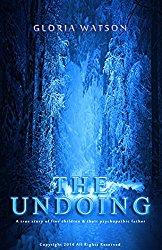CHILD ABUSE
As an adult child abuse survivor,
I have to admit; sometimes it’s hard to keep it real even after taking that
huge step of making your abuse public knowledge. It’s no secret that I started this blog to
promote and build a dialogue around my book Skipping
Childhood: A Novel (From Abused Foster
Child to Adolescent Serial Killer).
I’ve stated that from the very beginning. This work of fiction can be found in Amazon’s
Mystery, Thriller & Suspense category. But
something else I also stated from the beginning is that a large percentage of
my novel is based on true events. The child
abuse and neglect was real, the characters were based on real people, the
settings, etc…
Now before the
cops come knocking and asking about dead bodies, let me restate that everything
EXCEPT the murders were based on true events.
The fictional murders were
symbolic of an adult survivor victim’s attempt to kill the bad memories, regain a sense of power and find closure. But the blog has awakened a new need for this
survivor. I want really want to address these
related issues from a “reality” or non-fiction standpoint, and tie it in with dialogue about the book. And that
leads me to my point about it being hard to keep it real. From a personal aspect, I sometimes find it difficult to address certain
topics on my 2017 list of words; though that is my primary mission
of the blog.
All Abuse is Bad
When it comes
to different forms of child abuse; as the years progress, some adult survivors tend
to minimize the level of abuse they suffered.
Whether it is child neglect, emotional abuse, mental abuse, physical
abuse, or sexual abuse, there is no justification for it. The
abusers should not be let off the hook, even if only in our minds. Regardless of how we try to minimize or even justify
the events, all child abuse is bad and unwarranted.
This point recently
came to my mind as a topic for discussion.
Lately, I’ve been paying particular attention to books related to mine
in any way shape or form. It can be
really tricky trying to make sure your book title is categorized correctly. For instance, in addition to being available
in the Amazon category that I mentioned above, Skipping Childhood is also
listed in the coming
of age section. I put it there,
because most of the other titles I found on the topic of child abuse were
listed as “true story” books and available in the non-fiction category.
As I looked over those books and
saw some of the horrible things that people have actually done to children, I
found myself minimizing my own horrors.
I also found myself wondering if the events I describe in my novel would
even remotely justify murder when compared to some of the true life cases. That is when I began to wonder how much more
of my own truth I should divulge, or if in fact I want to cross that line. Then I told myself what I just stated in the
subheading: “All abuse is bad”. I don’t have to compare horror stories to
determine the level of abuse I experienced.
I also don’t have to feel bad about the way I choose to shed light on
this very real issue. I sincerely hope
that everything I have posted thus far and that I continue to post will be of
benefit to someone somewhere. I also
believe that my novel can be just as much a source of inspiration and
empowerment as some of the non-fiction self-help books for adult survivors.
Even though I’ve made some of my
truth known in Skipping Childhood, I
have definitely left a lot open to interpretation. Throughout this year, some of your questions
about my ties to the book may be answered in this blog. I have no doubt that somehow, I’ll muster the
courage to continue trying to keep things real in my writing. I know it won’t always be easy but I plan to
stay true to the mission for this blog. As
an adult child abuse survivor, when confronted with difficult choices, I do
what we do best; SURVIVE!
Pick up a copy of









